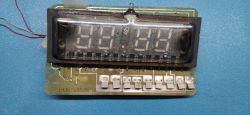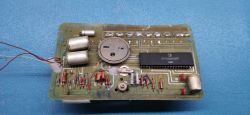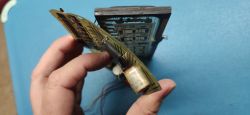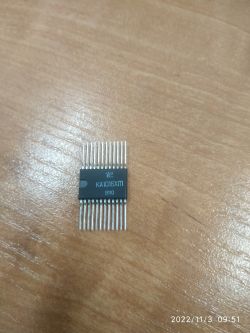I got this clock from Allegro, which a friend persuaded me to buy
fast105 .
I will tell you that after disassembling I was surprised by its performance, so I will show it to you.
As you can see in the pictures, it is like a normal ELECTRONIC type clock on the KP145NK1901. On the one hand, there is a PCB display with something like microswitches in the form of plates, and on the other, the rest of the components.
But the PCB is very thin. About 0.2mm and looks like some historical "flex pcb". It is also quite flexible - it can be bent easily. But of course, without exaggeration, because as you can see, the elements are soldered normally - they are threaded and if the bend is too strong, it will probably disconnect.
It looks funny.
In a few places you can see traces of thermoglue - so someone has already "repaired it".
There are 3 cut power wires coming out of the pcb. I haven't connected it yet, so I don't know if it works or not - I also need to improve the connections a bit, especially with the processor, because they don't look very special.
Film capacitors also look like they have been lying for 100 years and a little fear to connect it. Well, if I find a moment, I'll check it, although of course I'm most interested in the state of the display.



I have no idea why this laminate was used. The design was enclosed in a normal plastic housing, so I don't really see the justification.
Those dire quality "micro switches" sure worked even worse because of the flexibility of the PCB.
Was it to save the production with the laminate they had left, because it wasn't very good for anything at that time?







